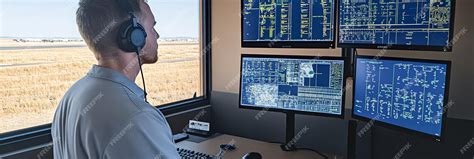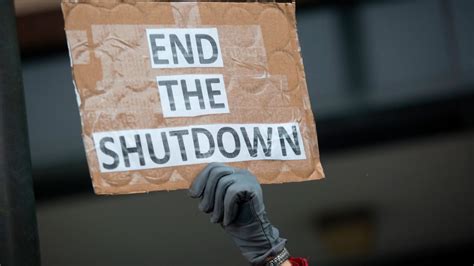
Air Travel Chaos Imminent as Government Shutdown Grows
The skies above the United States are facing an unprecedented crisis as the ongoing federal government shutdown pushes critical aviation infrastructure to the brink. Transportation Secretary Sean Duffy has issued stark warnings: if the shutdown continues into next week, travelers should brace for "mass chaos," including widespread flight delays, cancellations, and even the potential closure of specific airspace regions.
The Core Problem: Understaffed Air Traffic Control
The root cause of this looming travel disaster lies in the Federal Aviation Administration (FAA) and its network of air traffic control facilities. According to the FAA, nearly 50% of all major air traffic control facilities are currently experiencing staffing shortages. This shortage is not hypothetical; it's actively impacting operations. Just this past Friday, the agency reported that a staggering 80% of air traffic controllers in the critical New York area called out sick, severely straining the system.
The situation is dire for the approximately 13,000 air traffic controllers who are required to work without pay during the shutdown. As Secretary Duffy acknowledged during a recent event, these professionals face an impossible choice: "Do they go to work as an air traffic controller, or do they have to find a different job to get resources, money, to put food on the table, to put gas in their car?" The financial pressure is mounting daily, and Duffy predicts the problem "is only going to get worse, not better."

A crowded security checkpoint at George Bush Intercontinental Airport, Houston, Texas. Such scenes are expected to worsen as staffing shortages impact both security and air traffic control.
Government Response and Contradictions
The Department of Transportation's approach has been fraught with contradictions. Initially, Secretary Duffy threatened controllers who didn't report for duty, stating, "If you don't come to work, you don't get paid... If we have some on our staff that aren't dedicated, we're going to let them go." However, facing intense backlash and recognizing the untenable position these essential workers were in, he significantly softened his stance over the weekend.
"They need support, they need money, they need a paycheck. They don't need to be fired," Duffy told CBS's "Face the Nation." This reversal highlights the precarious situation but offers little immediate relief to controllers struggling to make ends meet. Duffy's primary message now revolves around safety: "We will delay, we will cancel, any kind of flight across the national airspace to make sure people are safe." This admission underscores the severe risk the understaffed system poses.
The risk is multifaceted. "There is a level of risk that gets injected into the system when we have a controller that's doing two jobs instead of one," Duffy explained. Overworked controllers are more prone to fatigue and error, potentially compromising safety in the already congested national airspace.
What This Means for Travelers Today
While the potential for a full-blown airspace shutdown looms next week, the impacts are already being felt. Flights are experiencing delays and cancellations due to staffing issues, as evidenced by the recent ground stop at Newark Liberty International Airport mentioned by Secretary Duffy. Long lines at security checkpoints are growing as federal TSA staff also face similar staffing challenges and financial strain.

An air traffic controller working at their console. Such facilities nationwide are facing critical staffing shortages, forcing remaining staff into unsafe overwork.
For travelers planning trips, especially in the coming days and weeks, vigilance is key. Expect significant disruptions. Monitor flight statuses closely through airline apps and websites, arrive at airports with ample extra time, and be prepared for sudden cancellations or route changes. The situation remains highly fluid and dependent on the government's ability to resolve the shutdown and fund these essential services.
The Road Ahead: Uncertainty and Potential Crisis
Transportation Secretary Duffy's warning is clear and urgent: "If, if you bring us to a week from today, Democrats, you will see mass chaos." The threat of closing specific airspace regions is a last resort to manage a system that could otherwise collapse under the weight of understaffing and controller exhaustion. The immediate future of American air travel hinges entirely on the resolution of the federal budget standoff. Without a funding agreement, the promises of "mass flight delays" and "mass cancelations" are poised to become a harsh reality for millions of travelers.
This developing crisis serves as a stark reminder of the critical role federal employees play in maintaining the safety and efficiency of the nation's travel infrastructure. The human cost, forcing essential workers to choose between their duty and their livelihoods, is as significant as the travel disruptions themselves.
Share this article
Jessica Wang
World traveler and travel writer who explores hidden gems and provides tips for adventurous journeys.